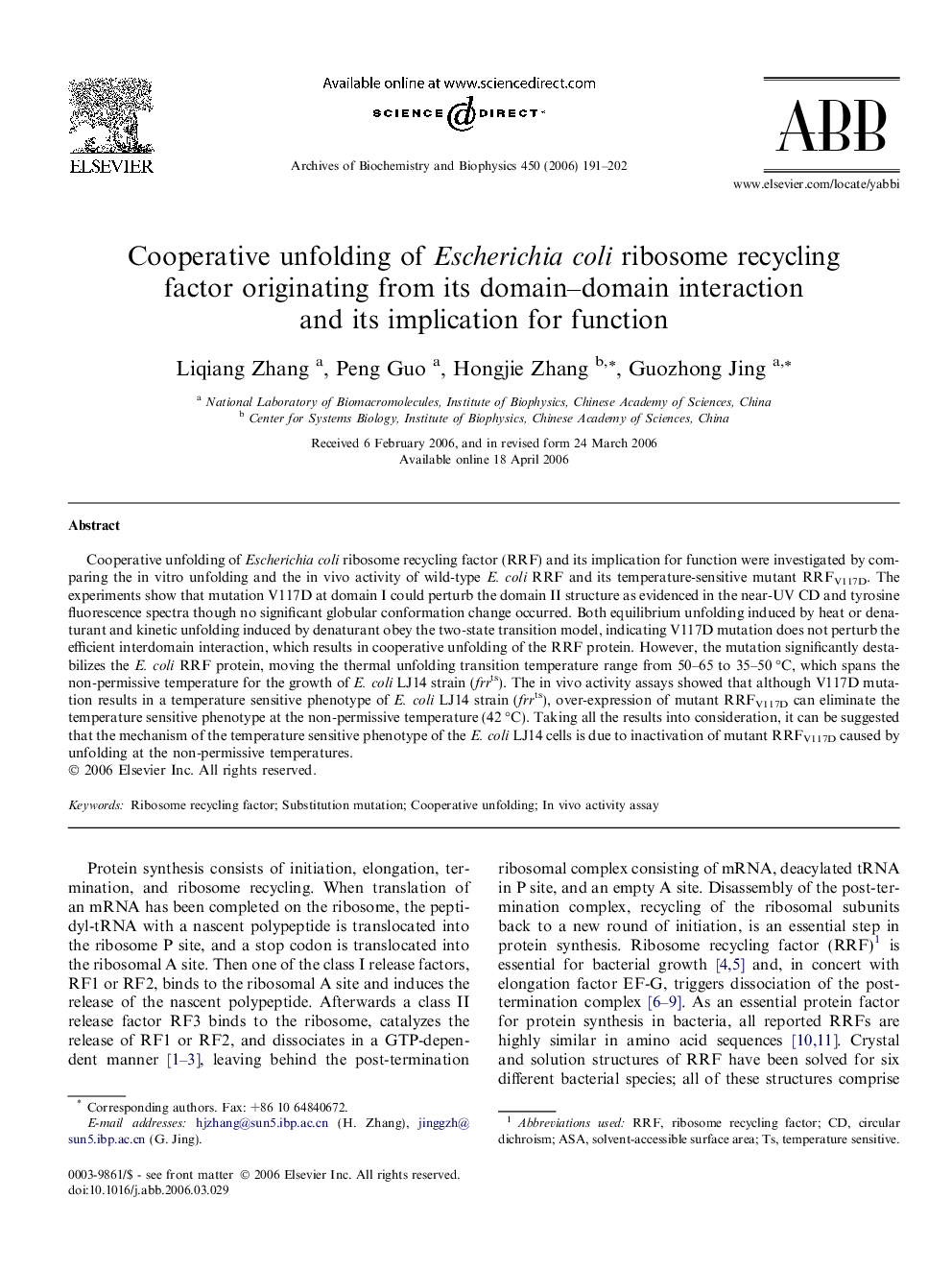| Article ID | Journal | Published Year | Pages | File Type |
|---|---|---|---|---|
| 1927508 | Archives of Biochemistry and Biophysics | 2006 | 12 Pages |
Cooperative unfolding of Escherichia coli ribosome recycling factor (RRF) and its implication for function were investigated by comparing the in vitro unfolding and the in vivo activity of wild-type E. coli RRF and its temperature-sensitive mutant RRFV117D. The experiments show that mutation V117D at domain I could perturb the domain II structure as evidenced in the near-UV CD and tyrosine fluorescence spectra though no significant globular conformation change occurred. Both equilibrium unfolding induced by heat or denaturant and kinetic unfolding induced by denaturant obey the two-state transition model, indicating V117D mutation does not perturb the efficient interdomain interaction, which results in cooperative unfolding of the RRF protein. However, the mutation significantly destabilizes the E. coli RRF protein, moving the thermal unfolding transition temperature range from 50–65 to 35–50 °C, which spans the non-permissive temperature for the growth of E. coli LJ14 strain (frrts). The in vivo activity assays showed that although V117D mutation results in a temperature sensitive phenotype of E. coli LJ14 strain (frrts), over-expression of mutant RRFV117D can eliminate the temperature sensitive phenotype at the non-permissive temperature (42 °C). Taking all the results into consideration, it can be suggested that the mechanism of the temperature sensitive phenotype of the E. coli LJ14 cells is due to inactivation of mutant RRFV117D caused by unfolding at the non-permissive temperatures.
